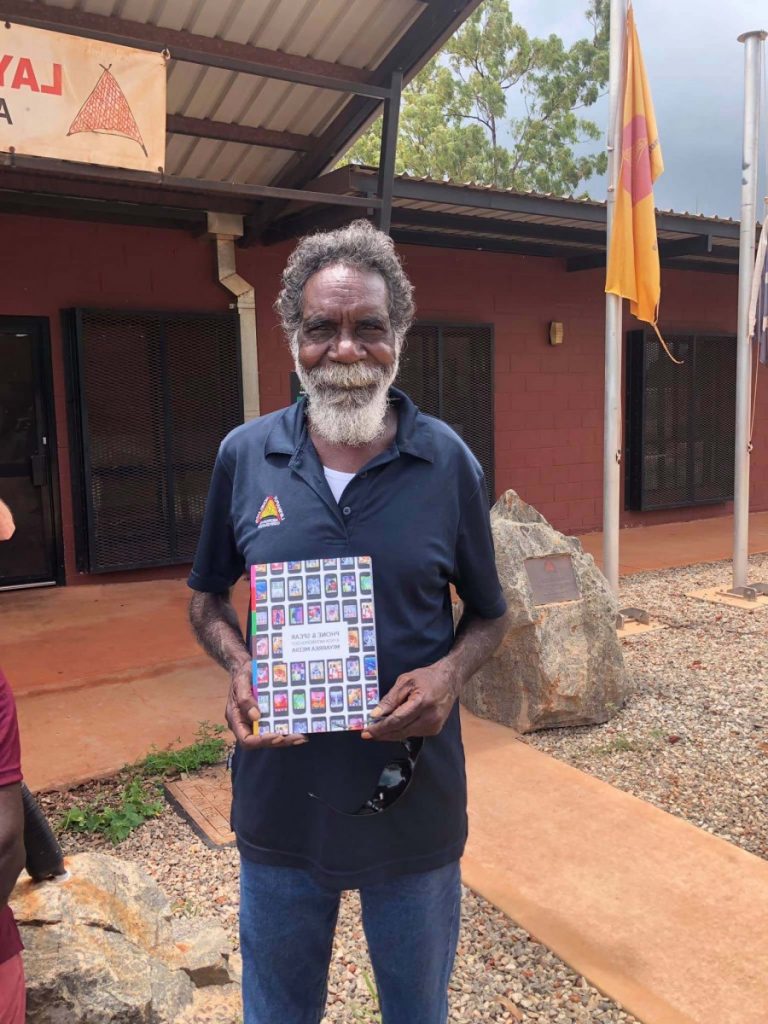Miyarrka Media uses images, stories, voices and writing to create an anthropology of relationship making. We call this yuta anthropology. If ‘old’ anthropology understands its task to be revealing one world to another, the challenge of yuta anthropology is to bring different worlds into relationship.
A back-and-forth spark animates our work. Together we seek forms of expression that allow us to at once analyse relations and make them anew. Combining different media elements enables us to create fields of resonance, energy and meaning made to move between different bodies, generations and cultures. The result is something more than a collaboratively written, community-authorised account of Indigenous lifeworlds. Profoundly anchored in Arnhem Land, yet reaching far beyond its sandy shores, this work embraces the voice of Country itself to create an ode to shared futures yet to be found.

| 2024 | Luŋ’thun: Sand, saltwater, and collaborative attunements. 2024 Gurrumuruwuy, P., Deger, J., Guruŋulmiwuy, E., Coffey, V.B., Balanydjarrk, M. & Balpatji, W. “Luŋ’thun: Sand, saltwater, and collaborative attunements”. The Australian Journal of Anthropology, 35, 27–38. Available from: https://doi.org/10.1111/taja.12494. Digital article here: https://www.curatorium.au/taja-journal/form-content/lungthun-sand-saltwater-and-collaborative-attunements |
| 2020 | Yuta Anthropology. Miyarrka Media. “Yuta Anthropology”. In Indigenous research ethics: Claiming research sovereignty beyond deficit and the colonial legacy, Lily George, Juan Tauri and Lindsey Te Ata o Tu MacDonald (eds), Emerald Publishing, UK. |
| 2020 | The law of feeling: experiments in a Yolngu museology. Paul Gurrumuruwuy and Jennifer Deger. “The law of feeling: experiments in a Yolngu museology”. In The Routledge International Handbook of New Digital Practices in Galleries. H. Lewi, W. Smith, D. vom Lehn, S. Cooke (eds). Oxon and New York: Routledge. pp 335-344 |
| 2016 | Mobile phone remix. Paul Gurrumuruwuy and Jennifer Deger. “Mobile phone remix”. Artlink 36(2): 85-87 |